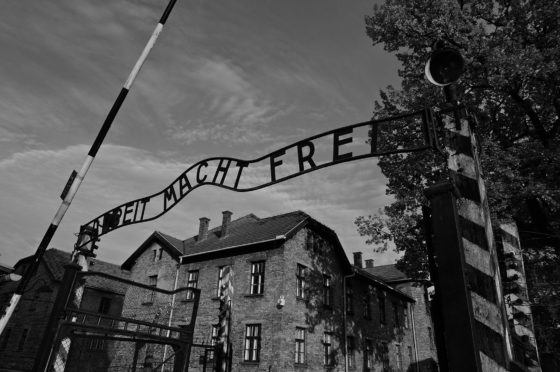All eyes have been on Europe this week.
The UK officially left the EU at 11pm yesterday but it was an event nearly 800 miles east of Brussels, by the small Polish town of Oswiecim, that was the focus of attention this week.
Located in Upper Silesia, about 30 miles from Krakow, Oswiecim is fairly nondescript, it looks just like any mid-sized industrial town you might find in Eastern Europe.
It has a moderately successful ice hockey team – in Polish terms, at least – a few shops but otherwise appears unremarkable, apart from one, small fact. The Germans called it Auschwitz.
It was near Oswiecim that the Nazis created their most infamous death camp. Initially Polish army barracks were to house Jews, Poles, communists, homosexuals and all the others deemed undesirable by the Nazi regime.
Visit Auschwitz One today, pass under the gate that still proclaims Arbeit Macht Frei, and the camp looks ordinary enough, if not exactly pleasant.
It is only when you get to the bunkers used as gas chambers and see the crematoria, or the execution wall where prisoners were lined up and shot, that its history opens up like a chasm beneath your feet. Then, of course, there are the displays of human hair, of shoes and suitcases, less a testimony than the chilling absence of one.
But Auschwitz One was just a work in progress. A few miles away the Germans built Auschwitz-Birkenau.
A third camp was built later on but Birkenau is what we think of when we imagine Nazi concentration and death camps. It’s a vast, sprawling place built with an attention to detail that continues to horrify to this day.
At Birkenau the train tracks ran straight to the gas chambers.
Oswiecim itself was largely cleared, its residents kicked out of their homes to make way for Nazi soldiers and their families. Dr Josef Mengele was also given accommodation in the town.
I’ve made pilgrimages to Auschwitz twice: the first as a teenager, the second as a reporter on one of the annual trips organised by the Holocaust Educational Trust.
But, and I imagine this is the same for most people, neither trip has ever really helped me understand how such horrors came about or where complicity in industrial-scale murder begins and ends.
There are just a handful of death camp survivors left.
There is a wealth of material available that tells us much about the atrocities that occurred, where the human spirit was perverted and where, in spite of all, it survived.
But it is unlikely we will ever fully comprehend what it was like for those who suffered and died.
Nobody knows what Brexit will really mean for the UK or our relationship with the family of European nations to which we belong.
But this week’s commemorations should leave us in no doubt that whatever the political or economic reasons driving our departure, what happens in Europe matters to us all.
Whatever the future holds, we must remember that we are not just the island geography has made us.
The Wonga con
Payday lender Wonga has a business plan that may have been legal but it was morally reprehensible.
It offered loans to people with poor credit at exorbitant rates.
Inevitably, those who took out loans found themselves borrowing more and more each month as their debt to the company grew and grew.
The company went into administration and those who were sold loans they could not afford were awarded compensation.
The final insult for these borrowers – people who would not have gone to Wonga had they not been desperate, remember – is administrators for the defunct company are only able to pay 4.3p for every pound in compensation they are actually owed.
That companies like Wonga were able to exploit the most vulnerable people in our society to line their own pockets was a national scandal and there should be tougher laws governing how much interest lenders can actually charge.
If the shoe fits…
Calvin Harris, the internationally-renowned DJ and former boyfriend of the pre-Cats Taylor Swift, is set for a return to Dundee this year as part of Radio 1’s Big Weekend.
As revealed in this very paper, indeed, by this very writer, the huge festival is coming back to Dundee in May.
Hopefully, Harris’s time on stage will go a little better than the last time he played Dundee.
While playing Fat Sams, a fan hit him in the face with a shoe they had lobbed stagewards.
Whether this was over-excitement or a new field of music criticism, no one is really sure. Still, I’m sure the DJ will be keeping a keen eye on the crowd when he performs in May.
‘Giving it all the ‘Hello Dundee’’ 😩 pic.twitter.com/vP3lemc4Ag
— Love Regenerator (@CalvinHarris) January 27, 2020










